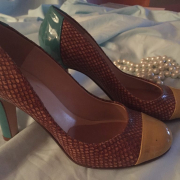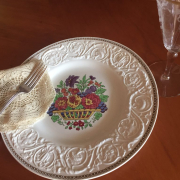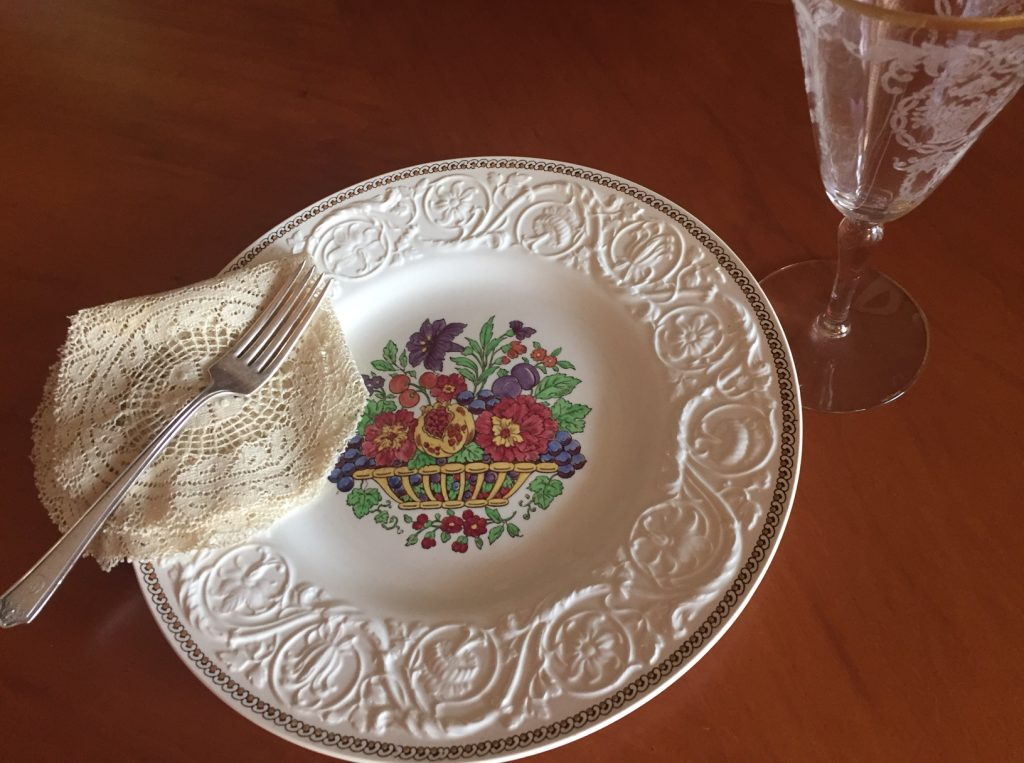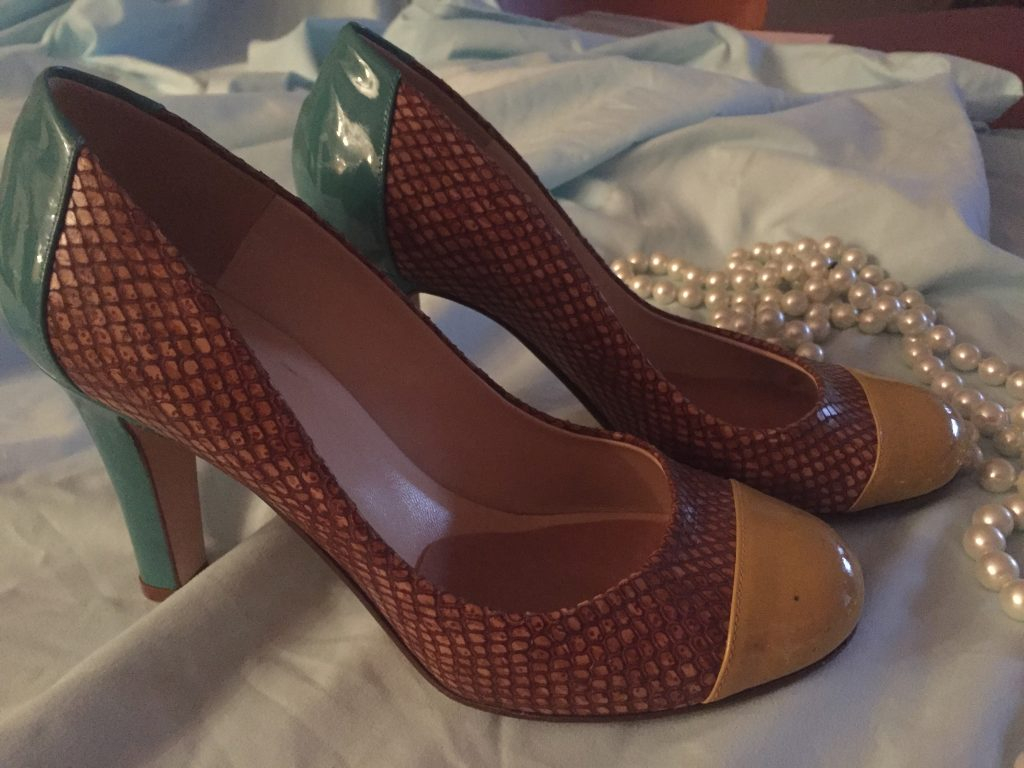
These are my Easter shoes. Pretty spectacular, yes? They tend to attract a lot of comments when I wear them, at least once every Easter season. But these aren’t just fabulous footwear. These are shoes with a story.
In early fall of 2012, our family faced news for which there is no preparation. My beautiful younger sister, Jane, learned that fall that cancer had penetrated her brain. More than four years into her fierce battle with the most aggressive form of breast cancer, the disease took a huge leap forward into the control center of her mind and life.
After we received the news together in the doctor’s office, Jane and I quietly parted ways outside and each turned homeward. The diagnosis at that stage was not yet pronounced as terminal, but clearly, we were now in the most desperate of battles. Cancer in her brain? Cancer messing with the synapses that twinkled in a soul that was born to serve others, to spread love everywhere she went, to give all she had? How was it even possible for a just universe to allow it?
I’ll never know what Jane did over those next couple of hours as the news began to sink in. Shock and grief spur the most bizarre things. I’m not proud of what I did, but here’s the truth: I went to the mall.
I mean, really. But I couldn’t go home alone. I couldn’t go back to the office, couldn’t answer anyone’s questions, risk crying in front of someone. Yet I was desperate to avoid isolation, to observe people going about daily lives, to stare hard at the ordinary and believe it would ever exist again.
To the Hallowed Halls of Excess I went, and I wandered through the entrance nearest the first parking place I spotted. I staggered inside and aimlessly turned right, then ambled without aim into the first store where a smiling face invited my approach. I won’t name the designer here, but let’s just say I would never, ever, at my age and on my budget, have set out to make the shop my destination. Yet there I was.
And there were the shoes.
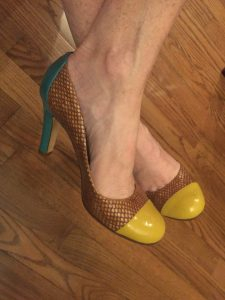
Like I said, shock can be the strangest dynamic of the soul. I’m not sure why I thought the shoes might make me feel better. Granted, retail therapy is one of the oldest jokes in our materialistic culture, but this ran much deeper. Certainly, I had never seen a pair like them, never worn anything on my feet half that expensive. Maybe I thought I would strike a blow at the pain by spitting the Budget in the Eye, like some perverted twist on the theory of the ring in the cow’s nose. Or something. Maybe I was too stunned to notice the price. No doubt, I was too distracted to fit myself correctly, because they are half a size too small. And so, the nonsense piled up on top of itself, while the shoes went into a bag and homeward with me.
I shocked everyone who knew me the first couple of times I wore them. I can’t remember if I ever wore them for Jane before we lost her about 10 months later.
When I admitted this escapade to a friend many months later, the friend asked kindly if I would ever enjoy wearing the shoes again, or if the three-inch heels would tap out too many unbearable memories with every step.
Grief charts its own course, with no pilot to decide the direction or distance of the journey, and Mercy often blurs the details over time. I can’t remember when I first knew to bring the shoes out for Easter. Or when I realized that the answer to my friend’s question is actually the opposite of what she feared.
As I dust them off and admire them anew this Easter season, the shoes require me to remember that after unbearable pain gently alters over time, something beautiful may remain. They are my colorfully absurd, ridiculous reminder about the eternal nature of love, even though love may walk together with agonizing sacrifice. Acquired on one of the darkest days imaginable, they somehow make me accept yet again that Jane’s love, shared so freely with me and so many others, does, truly, endure forward, and forever, not to be diminished by time or space.
So, it’s time again to cram my complaining feet into an ironically high-fashion, shamefully secular tribute to a beloved soul who went ahead and yet remains. Never given to impractical extravagance, a stunner who made any brand look stylish and expensive, my sister would laugh her head off at the very idea. And I love her for that, still, as I know she loves me, and all of us. Hallelujah.


